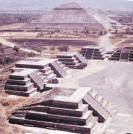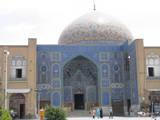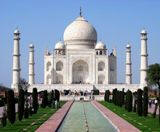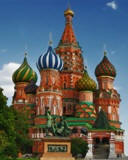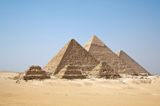|
Invitation
to an
International Conference
The Role of
Religion in Reducing Violence in
Human
Relationships
October 18-19, 2014
Teheran/Qom, Iran
with
Shahid Beheshti University
Theme
It is both the glory and the conundrum
of persons that they can achieve their proper fullness only by
transcending or going beyond their humanity. They are destined
to a life they can neither fully comprehend or precisely
control. The result is a need for philosophy, notably
metaphysics, in order to help guide one's steps.
On the one hand, it is necessary to
avoid the idolatry of an egoism that absolutizes oneself and
instrumentalizes the other to the destruction of both. On the
other hand, one is drawn ever forward and upward to realize the
human potential of a spirit incarnate in matter, yet which knows
no bounds.
The key to both is the transcendence
unique to humans which both constitutes and challenges their
glory. Poorly conceived this can base attacks on others and
religious wars. Yet correctly applied it constitutes the call
for self-sacrifice for others and the appeal of peace.
Two currents are especially relevant
here. One relates to the Nazi experience and the holocaust.
After World War II this generated a focused attack, especially
among French philosophers, against any sense of 'absolute' and
hence of 'transcendence'. This reduced all to the relative, the
reductively human and the secular. This is an essential
ingredient of the post moderns and of contemporary philosophy.
The other current is the spectacle of
the contemporary turmoil across the various regions of the
globe. This tends to reinforce the first current leading to the
sense that any sense of transcendence is destructive of life in
these times. Here one is led to the central issue of culture and
its phases: a sense of transcendence was needed in an earliest
rural phase of life; it was supplanted by the rule of law
immanent to human society in its modern urban configuration.
What then of the present situation where the media so
individualizes the context of meaning that it supplants the
social forces of religious institutions on the
religious/transcendent level, as well as of social structures
such as labor unions and political parties on the properly human
level.
Whether religion is essentially the
cause of peace and/or of violence is the main burden of this
seminar. Through human history religion has been the essential
key to the salvation of humanity, yet if poorly done or not
attended to in a secular age leads to human stagnation and
indeed to violence.
Sub-topics:
Modernity and modern types of violence
Religion and Inner peace
Abrahamic faith and the idea of pacifism Peaceful and violent
reading of Religious Texts Successful peaceful Religious
Leaders: Cases and Examples Family and education of peace
Theological Treatment of Violence Religious extremism, the
origins and excuses Religion, meaningfulness of Life and peace,
Nihilism and Violence
Contact:
Janet Blake
Shahid
Beheshti University
Tehran, Iran
j-blake@sbu.ac.ir
|


